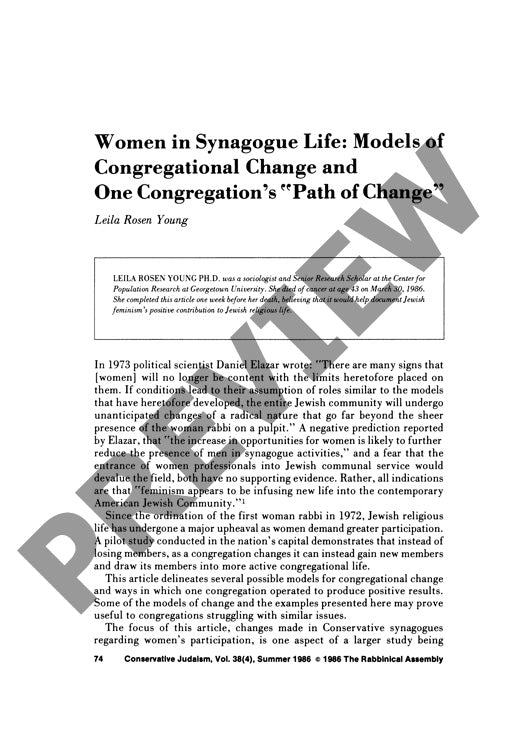Women in Synagogue Life Models of Congre
Couldn't load pickup availability
When Conservative synagogues began including women in ritual practices, skeptics predicted declining male participation and shrinking congregations. Yet research across multiple congregations reveals the opposite: expanded women's involvement often strengthened community vitality and even drove membership growth. Through in-depth interviews examining how congregational changes unfold, four distinct models emerged: rabbi-initiated proposals (Model A), lay leader-initiated changes (Model B), board or committee decisions (Model C), and unilateral rabbinic introduction with discretionary withdrawal (Model D). A pilot study of one Washington-area Conservative synagogue illustrates successful implementation across multiple changes - from counting women in the minyan (1969-1970) to granting aliyot (1973) and addressing Bat Mitzvah inequities. Rather than experiencing predicted losses, the congregation attracted new families specifically because of enhanced women's participation. These findings contribute to mounting evidence that feminist integration enriches contemporary American Jewish communities, challenging traditional assumptions about gender roles in religious life. As congregations continue expanding women's involvement, they demonstrate how religious communities can successfully transform liturgical forms and leadership structures while maintaining spiritual and institutional strength.

More Information
-
Physical Description
-
Publication Information
Published 1986
ISBN
-
Publication Credits
Leila Young

